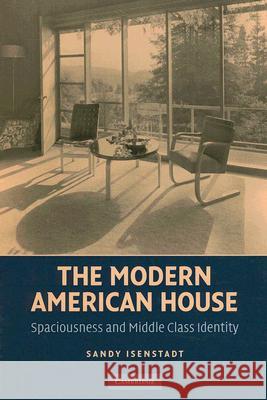The Modern American House: Spaciousness and Middle Class Identity » książka
The Modern American House: Spaciousness and Middle Class Identity
ISBN-13: 9780521770132 / Angielski / Twarda / 2006 / 342 str.
The Modern American House: Spaciousness and Middle Class Identity
ISBN-13: 9780521770132 / Angielski / Twarda / 2006 / 342 str.
(netto: 461,16 VAT: 5%)
Najniższa cena z 30 dni: 478,38
ok. 22 dni roboczych.
Darmowa dostawa!
Sandy Isenstadt examines how architects, interior designers, and landscape designers worked to enhance spatial perception in middle class houses visually. The desire for spaciousness reached its highest pitch where it was most lacking, in the small, single-family houses that came to be the cornerstone of middle class life in the nineteenth century. In direct conflict with actual dimensions, spaciousness was linked to a tension unique to the middle class - between spatial aspirations and financial limitations. Although rarely addressed in a sustained fashion by theorists, practitioners, or the inhabitants of houses themselves, Isenstadt argues that spaciousness was central to the development of modern American domestic architecture, with explicit strategies for perceiving space being pivotal to modern house design. Through professional endorsement, concern for visual space found its way into discussion of real estate and law.











